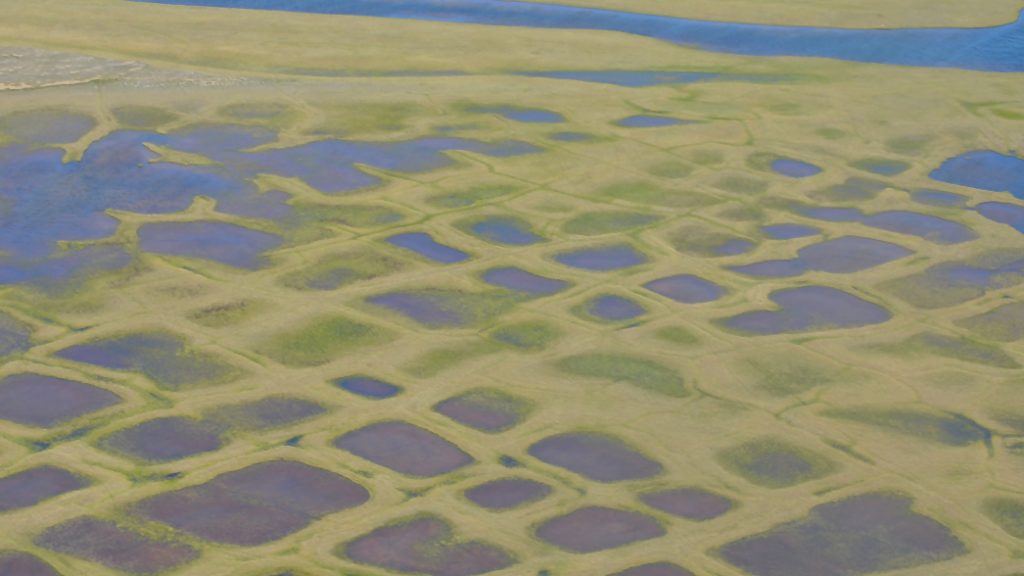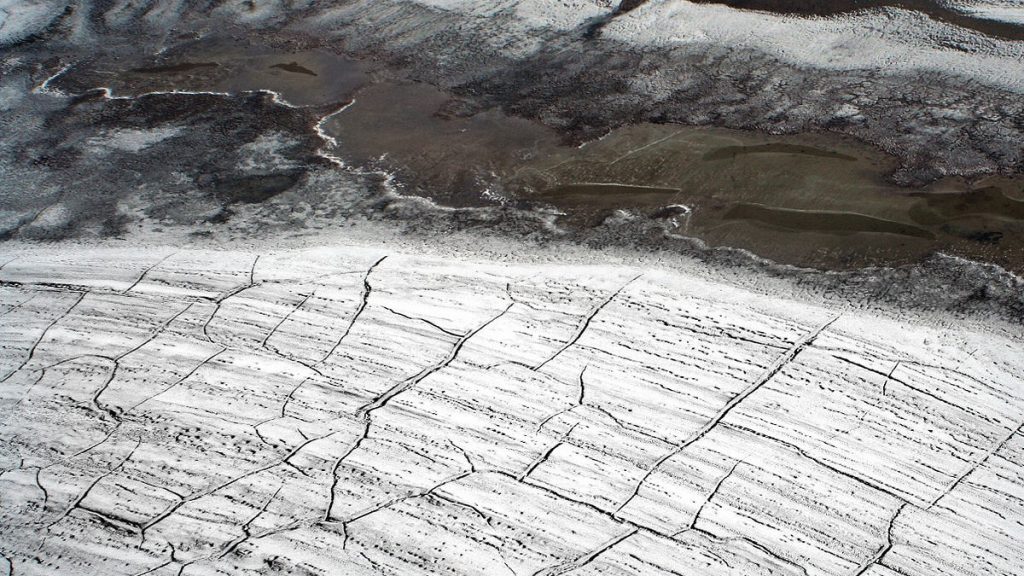Potential for major mercury leak as permafrost melts, new study finds

February 14th, 2018
A new study by the American Geophysical Union has warned that the thawing of permafrost may lead to massive changes in the global mercury cycle.
There are large amounts of mercury stored within permafrost – defined as soil that has been at or below 0°C for at least two years in a row.
The new study found that permafrost stores more than 15 million gallons of mercury, nearly twice as is contained in all other soils, oceans and atmosphere combined.
“This discovery is a game-changer”, according to the report’s lead author and a hydrologist at the U.S. Geological Survey in Colorado, Paul Schuster.
“We’ve quantified a pool of mercury that had not been done previously, and the results have profound implications,“ he warned. “There would be no environmental problem if everything remained frozen, but we know the Earth is getting warmer.”

This photo taken during the CARVE experiment shows polygonal lakes created by melting permafrost on Alaska’s North Slope. Image credit: NASA/JPL-Caltech
Mercury Storage
Since the last ice age, massive amounts of mercury have been stored in the Northern hemisphere’s permafrost.
Mercury enters soil through the atmosphere and then interacts with organic material. Microbial decay releases mercury back to the atmosphere, but if the soil is frozen, this process is slowed down heavily.
Microbial turnover of mercury in frozen organic matter, as it occurs in permafrost, takes 14,000 years. In unfrozen soil, this decay-time is reduced to just 70 years.
Permafrost is thawing due to the warming of the planet. A 30-99% decrease is projected until 2100.
Such a drastic reduction would release large amounts of stored mercury into waters and atmosphere, with yet unknown consequences.
Health implications
The Environmental Protection Agency labels mercury as “highly toxic to humans ecosystems and wildlife”, with even small doses posing large health risks.
If methane accumulates in the Earth’s waters, it could have devastating effects on the environment, as well as humans, as it could travel up the food chain and end up on our plates.
Mercury is associated with serious health issues for the nervous, digestive, immune and respiratory system, according to the World Health Organisation.

image was taken in High Arctic from a helicopter. It shows the crack pattern in permafrost Photo: Brocken Inaglory
Carbon Leakage
The release of mercury is not the only potential threat stemming from the continuous melting of permafrost. Numerous studies released in recent years have revealed the dangers of the carbon cycle that thawing of permafrost brings.
A 2014 study revealed that permafrost contains nearly twice as much carbon than is in the atmosphere, roughly 1,700 gigatons.
Thawing permafrost would release large amounts of that carbon over time, partly in the form of methane, potentially causing global warming of about 0.3ºC over the coming centuries and thus further contributing to climate change.
[x_author title=”About the Author”]







